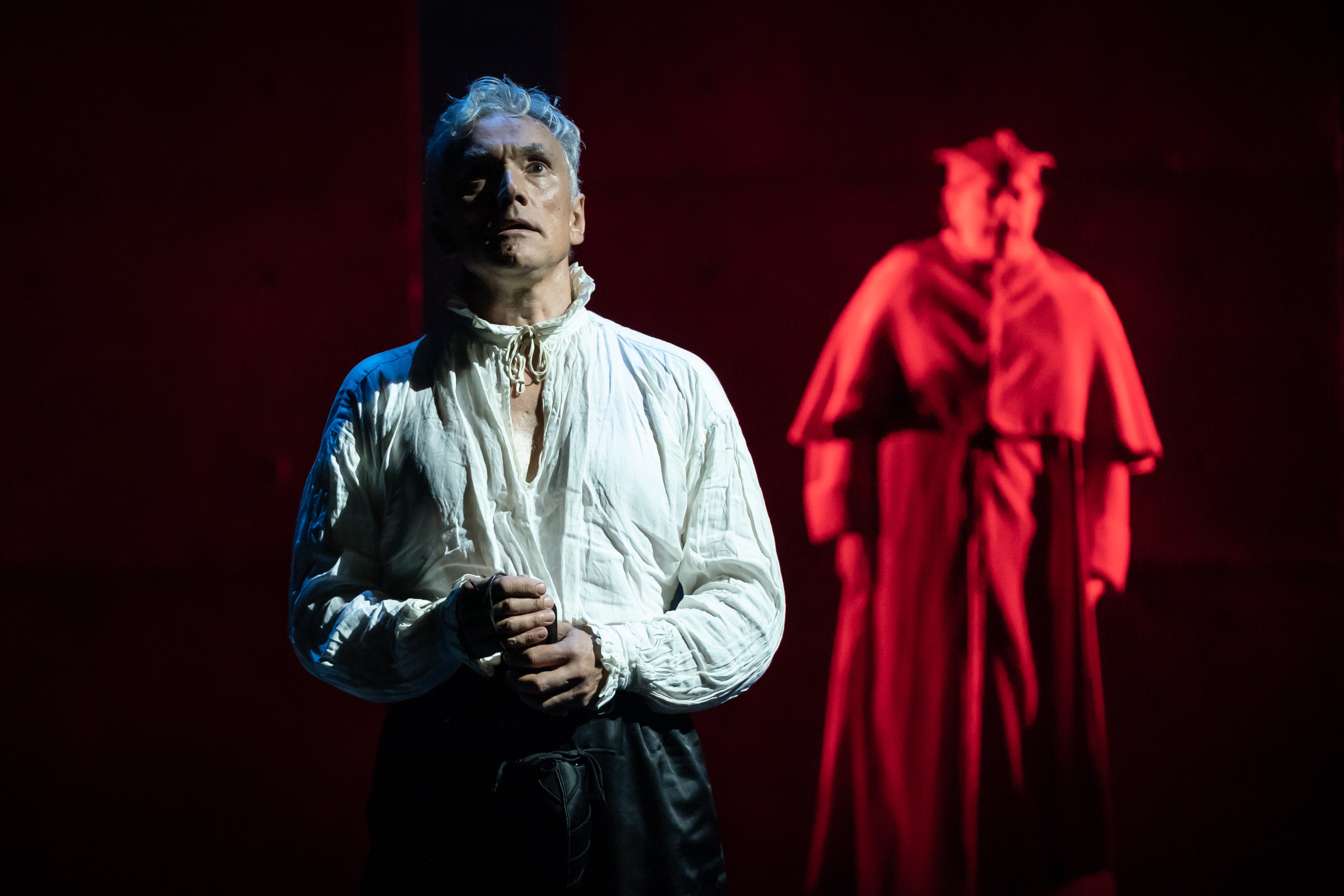The Mirror and the Light review: A thrilling conclusion to Hilary Mantel’s historical trilogy
For this third play, at the Gielgud Theatre, there has been a very intriguing change – the novel has been co-adapted by Hilary Mantel and Ben Miles, the actor who superlatively plays Thomas Cromwell

The Mirror and the Light dramatises – supremely well – the concluding volume in Hilary Mantel’s award-winning trilogy about Thomas Cromwell, the son of a Putney blacksmith who rose to be the fixer-in-chief at the court of King Henry VIII. The process of putting the novels on stage began in Stratford-on-Avon in 2013 with an all-day marathon comprising Wolf Hall and Bring Up the Bodies. Mantel, who has just cause to be thought of as the most intelligent writer ever to tackle – and revolutionise – the genre of the historical novel, worked closely on that occasion with the playwright Mike Poulton.
For this third play, at the Gielgud Theatre, there has been a very intriguing change. The director is still Jeremy Herrin and the designer is still Christopher Oram, and the two of them once again rise to the challenge with extraordinarily insightful stage-craft. But the novel has been co-adapted by Mantel and Ben Miles, the actor who superlatively plays Cromwell throughout. In my review in 2013, I commended him for the heft and psychological nuance with which he conveys the complexity of this figure – “the shrewd watchfulness, the sense of banked-down grief, the little flashes of sardonic humour”. It is thrilling now to watch him refine this portrayal even further as he takes the character through the trilogy’s entire arc. And it is even better to know that he had a hand (and an astute brain) in developing one of the dramatic boons of this third instalment. In 2013, I had a minor cavil about the inevitable losses in the transition from page to stage . These ranged, I argued, “from the atmospheric richness of Mantel’s prose to [those] flashbacks to formative experiences in Cromwell’s past such as witnessing, in boyhood, the pitiless auto-da-fe of a female heretic”.
This missing element in the story is provided now by a device that enters very naturally. Cromwell is repeatedly haunted by ghosts. For example, his first mentor Cardinal Wolsey, in his trademark red, wanders in from time to time to offer intimate advice. Significantly, the deceased cardinal is not absolutely sure from where he now hails. Is it, by any chance, purgatory? That would be a bit, ahem, ironic, given that Wolsey and Cranmer were the key Reformation figures who abolished this Papist superstition. Then there’s the figure of his violent father, shambling and a little triumphalist as he forecasts that his self-made big-shot will end up hanged, drawn and quartered (he imagines Cromwell’s testicles getting sent all the way to Wapping). He crows, with galling sanctimony, that he himself “died in my bed after a decent burial”.
Subscribe to Independent Premium to bookmark this article
Want to bookmark your favourite articles and stories to read or reference later? Start your Independent Premium subscription today.
Join our commenting forum
Join thought-provoking conversations, follow other Independent readers and see their replies